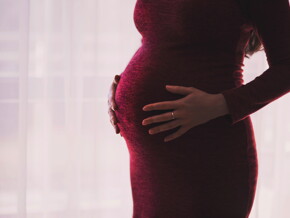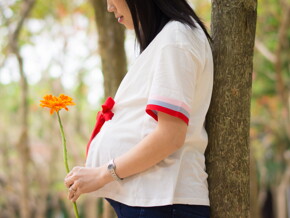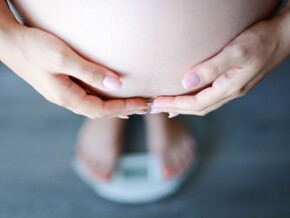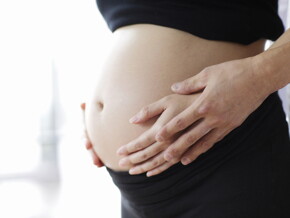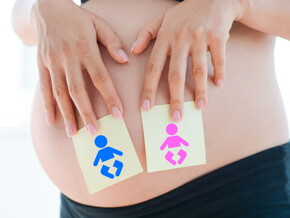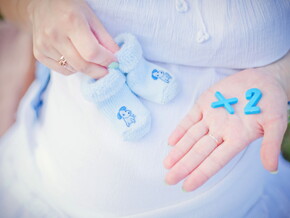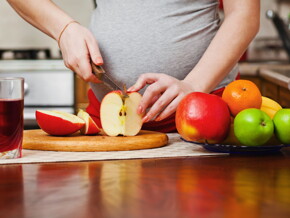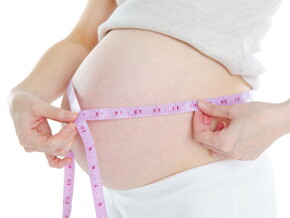
When to Take a Pregnancy Test After a Missed Period
Wondering when to take a pregnancy test after a missed period? Learn the types of tests, the best time for accurate results, plus early symptoms to watch for.
You suddenly feel tired all the time. You’re nauseated and have even thrown up occasionally. Your breasts feel tender. You also missed your period. These signs could all mean you’re pregnant, but how can you be sure? Knowing when to take a pregnancy test is key to getting accurate results. Let’s break down the best time to take a pregnancy test, how the tests work, and what to do next if you get a positive result. Keep reading to get the answers you need!
How Do Pregnancy Tests Work?

Pregnancy tests are designed to detect the presence of human chorionic gonadotropin (hCG). This hormone is produced after a fertilized egg attaches to the uterus lining, which typically occurs about 11 to 14 days after conception or around the time you miss a period. Home pregnancy kits check for hCG in urine, while blood tests, performed by healthcare providers, can detect hCG earlier and with greater accuracy.
Types of Pregnancy Tests
The urine pregnancy test is the most popular and accessible type, but other options can detect hCG in different ways.
1. Urine pregnancy test
Home pregnancy kits are widely used due to their convenience and speed. Most at-home tests can give you results in just a few minutes. However, knowing when to take a pregnancy test of this sort is crucial for accurate results.
2. Blood pregnancy test
Blood tests to detect pregnancy are typically done in a clinic. They’re much more sensitive compared to urine pregnancy tests and, out of all these options, they offer the earliest pregnancy detection since they can perceive hCG six to eight days after ovulation.
3. Ultrasound confirmation
While not a pregnancy test in the traditional sense, an ultrasound is the most definitive way to confirm your potential bun in the oven. You can also take a transvaginal ultrasound after around five to six weeks to see the gestational sac and later to confirm a heartbeat.
When's the Best Time to Take a Pregnancy Test?
So, when should you take a pregnancy test? According to the American College of Obstetricians and Gynecologists (ACOG), hCG levels typically become detectable in urine about 12-14 days after ovulation. So, the best time to take a pregnancy test is after a missed period. Some home kits claim to detect hCG as soon as you’re late in your cycle. However, waiting a week after may give you a more accurate result.
If your period is unpredictable, consider testing three weeks after sexual contact to allow enough time for your hCG levels to rise.
For best results:
- Take the test in the morning when your urine is most concentrated.
- Follow the test instructions carefully to avoid false readings.
- If testing early, use a high-sensitivity test and confirm results with a second test a few days later.
How to Use a Pregnancy Test
The good news is home pregnancy tests are easy to use—easier than saying “human chorionic gonadotropin.” Some brands may have variations in their instructions, but kits typically work the same way. Read the directions on the package completely before starting to ensure you have everything prepared. In general, here are the ways you can use a pregnancy test. Remember, the first step is to wash your hands. Spoiled hands may compromise the test’s effectiveness.
- Hold the test stick where your urine streams.
- Collect urine in a cup and dip the stick into it.
- Collect urine in a cup. Use a dropper to place an ample amount of urine into the test stick.
Check the stick after three to five minutes. Depending on the instructions, the results will be either positive or negative. If you’re only a day late and the test shows negative, try again in a few days. Taking a test too soon may lead to disappointment or confusion, so understanding when to take a pregnancy test is key to getting clear and reliable results.
How Effective Are Pregnancy Tests?
While most manufacturers of home pregnancy tests often claim over 99% accuracy when used from the day of your expected period, real-life accuracy can be lower. Research has found that accuracy depends on specific brands, with one study revealing that only one of 18 home pregnancy tests was sensitive enough to detect 95% of pregnancies upon the first day of missing a period.
That said, home pregnancy tests are still highly accurate when used correctly. Even the U.S. Food and Drug Administration (FDA) considers most urine-based tests 99% effective. However, testing too early can lead to false negatives, as your hCG levels may not be high enough to detect. The study “Strips of Hope: Accuracy of Home Pregnancy Tests And New Developments” also states that improper handling and unclear instructions on the package can compromise a test’s accuracy.
If the pregnancy test results are positive, consider that a first sign and not a full confirmation. You may want to get the more accurate blood test for further confirmation. Your OB-gynecologist may also schedule you for an ultrasound.
How Likely Is a False Positive Pregnancy Test?
A false positive on a pregnancy test is pretty rare but not impossible. Certain factors, such as a recent miscarriage or abortion, fertility treatments with hCG, or even certain medical conditions, can lead to a false positive. As always, when in doubt, test again and check in with your doctor!
My Pregnancy Test Says Positive. What Should I Do Next?
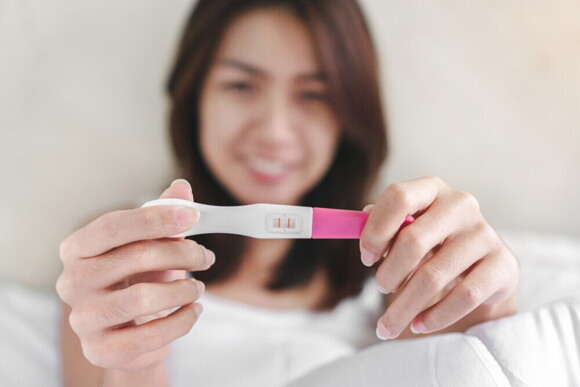
A positive pregnancy test is an exciting (and sometimes overwhelming) moment, but what you do next is just as important. Taking the right steps early helps ensure a healthy pregnancy for you and your baby. Here’s what experts recommend:
1. Confirm your pregnancy with a healthcare provider.
As mentioned earlier, taking a home pregnancy kit is only the first step. The Centers for Disease Control and Prevention recommends confirming your results with a doctor, who can recommend a blood test or an ultrasound. This measure can also help establish your prenatal care plan.
2. Schedule your first prenatal appointment.
Prenatal care is key to monitoring your health and your baby’s development. The World Health Organization (WHO) recommends scheduling your first prenatal visit within the first 12 weeks of pregnancy. Regular check-ups help track your baby’s growth, identify potential concerns early, and provide essential guidance on nutrition, supplements, and overall wellness.
3. Start taking prenatal vitamins.
Begin taking prenatal vitamins with folic acid if you haven’t already. This nutrient is essential for your baby’s brain and spinal cord development and helps prevent birth defects. Your doctor can guide you on the best prenatal supplement for your needs.
4. Focus on a healthy lifestyle.
You may have to make a few lifestyle changes when you're pregnant. Enjoy a balanced diet and know which foods to avoid, like alcohol and raw meats, when expecting. Practice pregnancy-appropriate exercises, stay hydrated, and rest.
5. Learn about pregnancy and birth.
Every pregnancy is different, so taking the time to educate yourself can help you feel more prepared. Look into the stages of pregnancy, birth options, and newborn care. Consider joining a prenatal class or reading trusted sources for guidance.
The Department of Health’s Maternal, Newborn, Child Health and Nutrition (MNCHN) Strategy Manual of Operations provides guidelines to ensure mothers receive the best care possible. This includes scheduled proper nutrition and even ways to recognize warning signs during pregnancy.
6. Plan, financially and emotionally.
Pregnancy brings big changes, both emotionally and financially. Discuss your plans with your partner, family, or support system. Understanding your healthcare coverage and preparing for maternity leave early can make the transition smoother.
Knowing when to take a pregnancy test can make all the difference in getting clear, reliable results. Whether you're eagerly hoping for a positive or just looking for answers, timing is key. Trust your body, follow the testing steps, and if you're unsure, don’t hesitate to check again or consult a healthcare provider. The journey to parenthood—or simply understanding your cycle—starts with understanding. Ready to take the next step?
References
Center for Devices and Radiological Health. “Pregnancy.” U.S. Food And Drug Administration, April 29, 2019. https://www.fda.gov/medical-devices/home-use-tests/pregnancy.
Cole, Laurence A, Sarah A Khanlian, Jaime M Sutton, Suzy Davies, and William F Rayburn. “Accuracy of Home Pregnancy Tests at the Time of Missed Menses.” American Journal of Obstetrics and Gynecology 190, no. 1 (January 1, 2004): 100–105. https://doi.org/10.1016/j.ajog.2003.08.043.
Doshi, M L. “Accuracy of Consumer Performed In-home Tests for Early Pregnancy Detection.” American Journal of Public Health 76, no. 5 (May 1, 1986): 512–14. https://doi.org/10.2105/ajph.76.5.512.
Gnoth, C., and S. Johnson. “Strips of Hope: Accuracy of Home Pregnancy Tests and New Developments.” Geburtshilfe Und Frauenheilkunde 74, no. 07 (August 1, 2014): 661–69. https://doi.org/10.1055/s-0034-1368589.
Pregnancy. “About Planning for Pregnancy,” May 15, 2024. https://www.cdc.gov/pregnancy/about/index.html.
Tulali, Carlos. “Philippine Policies on Maternal, Newborn, and Child Health and Nutrition: Towards Achieving MDGs 4 and 5.” Https://Www.Plcpd.Org.Ph/. Philippine Legislators’ Committee on Population and Development, 2014. https://www.plcpd.org.ph/wp-content/uploads/2014/08/Maternal-Newborn-and-Child-Health-and-Nutrition.pdf.
“What are HCG Levels?,” American Pregnancy Association, n.d., https://americanpregnancy.org/getting-pregnant/hcg-levels/.
World Health Organization: WHO. “New guidelines on antenatal care for a positive pregnancy experience.” World Health Organization, November 7, 2016. https://www.who.int/news/item/07-11-2016-new-guidelines-on-antenatal-care-for-a-positive-pregnancy-experience.












